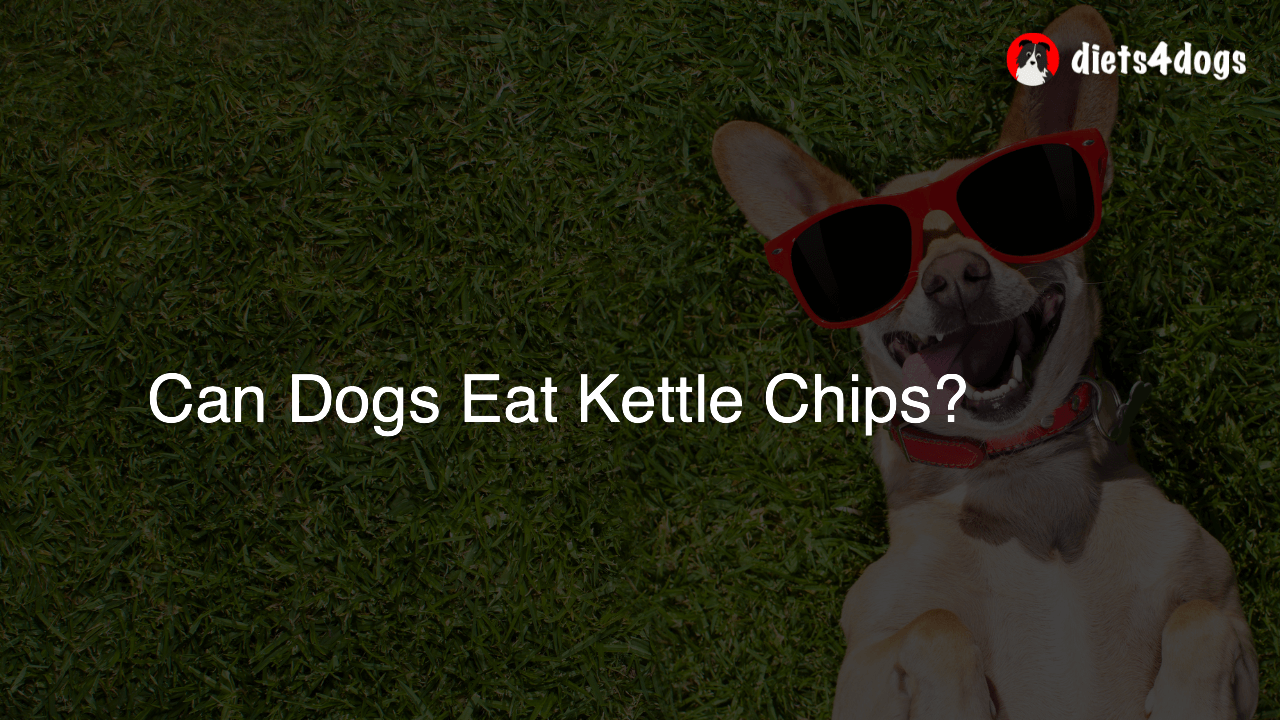Have you ever been in the middle of a movie night and wanted to grab a bag of Kettle Chips to share with your pup? You may have wondered whether Kettle Chips are safe for your pup to eat. The answer is, it depends. While Kettle Chips are made of mostly natural ingredients, they are not necessarily healthy for your pup. In this blog post, we will explore the ingredients in Kettle Chips and discuss whether they are safe for your pup to consume. We will also provide some tips on how to give your pup a healthy alternative to Kettle Chips.
Can Dogs Eat Kettle Chips?
Kettle chips are a type of snack food that is commonly found in stores and homes. While they are not typically seen as a part of a dog’s diet, they can be consumed in moderation. Kettle chips are not toxic to dogs, but they do contain a lot of salt and fat, which can lead to digestive issues if consumed in large amounts. In general, it is recommended that if you do give your dog kettle chips, you should do so in moderation and with supervision to ensure that they are not overeating.
Should Dogs Eat Kettle Chips?
In general, it is not recommended that dogs eat kettle chips as a regular part of their diet. Kettle chips contain a lot of salt and fat, which can lead to digestive issues if consumed in large amounts. Additionally, since they are a processed food, they may not provide any nutritional benefit to your dog. If you do choose to give your dog kettle chips, it is important to do so in moderation and with supervision to ensure that they are not overeating.
Is it Safe for Dogs to Eat Kettle Chips?
Kettle chips are not toxic to dogs, but they do contain a lot of salt and fat, which can lead to digestive issues if consumed in large amounts. Additionally, since they are a processed food, they may not provide any nutritional benefit to your dog. Therefore, it is important to monitor your dog’s consumption of kettle chips and to provide them with a balanced diet that is rich in proteins, fats, and carbohydrates.
Can Kettle Chips be Toxic to Dogs?
Kettle chips are not toxic to dogs, but they do contain a lot of salt and fat, which can lead to digestive issues if consumed in large amounts. Additionally, if the chips contain any artificial sweeteners, such as Xylitol, they can be toxic to dogs. Therefore, it is important to check the ingredients list before giving your dog kettle chips and to make sure that they do not contain any of the foods that dogs should not eat.
Can Dogs Eat Kettle Chips in Moderation?
Kettle chips can be consumed in moderation by dogs. Since they are a processed food, they may not provide any nutritional benefit to your dog, so it is important to provide them with a balanced diet that is rich in proteins, fats, and carbohydrates. Additionally, since they contain a lot of salt and fat, it is important to monitor your dog’s consumption of kettle chips and to ensure that they are not overeating.
Is there any Circumstance Where Kettle Chips is/are Not Safe for Dogs to Eat?
Yes, there are certain circumstances where kettle chips are not safe for dogs to eat. If the chips contain any artificial sweeteners, such as Xylitol, they can be toxic to dogs. Additionally, if the chips contain any of the foods that dogs should avoid, such as chocolate, onions, garlic, chives, grapes, raisins, alcohol, coffee, tea, citrus, coconut, raw or undercooked meats, eggs, avocados, nuts, fatty foods, cooked bones, milk or dairy products, moldy or spoiled foods, salt, or processed foods, they should not be consumed by dogs.
Conclusion: Kettle Chips can be Safe for Dogs in Moderation
Kettle chips can be consumed in moderation by dogs, but it is important to monitor their consumption and to ensure that they are not overeating. Additionally, it is important to check the ingredients list before giving your dog kettle chips and to make sure that they do not contain any of the foods that dogs should not eat, such as artificial sweeteners, chocolate, onions, garlic, chives, grapes, raisins, alcohol, coffee, tea, citrus, coconut, raw or undercooked meats, eggs, avocados, nuts, fatty foods, cooked bones, milk or dairy products, moldy or spoiled foods, salt, or processed foods. Ultimately, if given in moderation and with supervision, Kettle Chips can be












